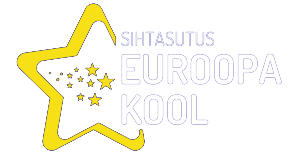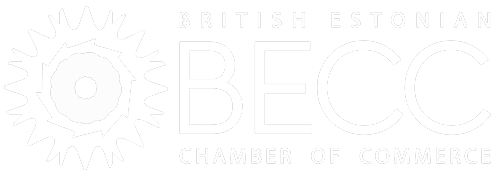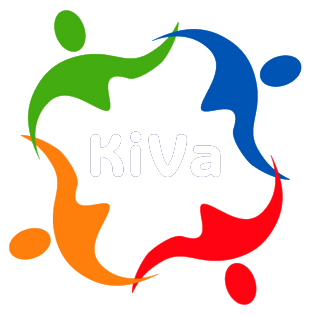New instructions to schools from the Ministry of Education and Research in force from Monday 1 November
In the past few days, a lot of new instructions and information letters has been added to previous ones. In addition to the rapid testing letter sent previously to all parents, please find below a summary of the information provided to school directors by the Ministry of Education and Research.
Updated guide, changes in simplified quarantine conditions in schools, hobby education and youth work, requesting COVID certification, rapid testing in schools, information materials
It is essential to control the spread of the virus in educational institutions so that contact learning and pupils’ hobby activities can continue. To this end, the simplified quarantine procedures have been changed. By introducing regular rapid testing and promoting vaccination among the school community, we support keeping the educational institutions open for studies. We recommend that all education and youth workers who have had six months of vaccination, receive a booster dose to strengthen protection. Continued attention must be paid to the ventilation of educational buildings, hand hygiene, the dispersal of pupils and the implementation of all measures to prevent the spread of viruses. As the risk of spreading the infection is very high, we urge teachers, tutors, and youth workers to wear masks, and pupils must also wear masks in public areas of the school.
The simplified quarantine procedure will be renewed and extended to hobby education and youth work
The new regime will take effect on Monday 1st November. A pupil who has been in close contact with a coronavirus-infected at school or at vocational school (up to the age of 19 this year) must have a PCR test from the fourth day after the contact. The asymptomatic pupil should remain at home until the test results are known. Vaccinated pupils and pupils who have recovered from COVID-19 do not need to be tested. Under the new procedure, all 12-year-old pupils in case of a close contact at a school, hobby school or youth work institution must also take a PCR test. If the test result is negative, the pupils can continue to participate in teaching and hobby activities. This means that the same procedure applies everywhere (so far, there has been a difference in the behaviour of close contacts at school and in hobby education). After learning the result of the PCR test confirming the negative result to the infection, the pupil can participate in the studies as well as in hobby activities. This means that the same regulation will apply to extracurricular hobby education, hobby activities and youth work, as well as to children’s sports competitions and sports and movement events. All vaccinated and pupils already being cured of the infection are exempt from testing. NB! If a pupil being in a close contact situation does not agree to be tested, he or she must be quarantined for ten days.
Only Nursery pupils can remain in simplified quarantine without testing after a close contact in the class/school. This means that a child who has come into close contact in the Nursery must be monitored for health and, if he or she does not show any symptoms of the infection, may participate in the schooling. The child may take part in joint activities outside the institution after ten days of close contact. If a close contact takes place outside the childcare institution, for example, at home or in hobby activities, the child must stay in quarantine for ten days.
Rapid testing in schools
To slow down the formation of school outbreaks and to quickly detect the infected, the schools start from November the rapid testing of all Primary and Secondary pupils, teachers, and other school staff. During the first two weeks, everyone will be tested three times a week (including vaccinated and those who recovered from the infection) during the first lesson of the school day. We review the subsequent testing arrangements after the first two weeks’ period. The rapid tests are child-friendly tests that can be easily performed by the pupils themselves, under the guidance of a teacher. The same tests have been in use for testing pupils and teachers in schools and homes in Austria.
- The test is done by using a sample taken from the front of the nostril, a procedure that is convenient and fast.
- It is recommended to organise testing on Monday, Wednesday and Friday at the beginning of the 1st hour.
- The teacher gives the tests at the beginning of the first lesson of the day, the pupils take the test and after 15 minutes the result is known.
- Test instructions can be found in the video guide of SelfDiagnostics testing in English and in French.
- If it turns out that a pupil has a positive test result, the pupil is sent home, and the parent is asked to make an appointment for PCR testing through a family doctor.
- NB! In case the parents of a pupil have refused to grant permission for rapid testing, asymptomatic children can remain at school.
Initially, testing will begin in general education schools, and in the future, testing will also be offered in vocational education institutions, if possible. More detailed information about testing has been sent to general education schools separately.
12- to 17-year-olds must provide a COVID or test certificate
From Monday 1 November, 12- to 17-year-olds (inclusive) must also submit a COVID certificate to gain access to activities for which control of infection credentials is required. In addition to proof of completion of a vaccination course or disease, proof of a negative result to a coronavirus PCR or antigen-RT test is also required for access to minors’ events and activities. The PCR test must be performed no more than 72 hours, and the antigen-RT test no more than 48 hours before the event and must be performed by a healthcare provider. In addition, the result of a rapid antigen test performed in a general pharmacy is also accepted. In addition to the vaccination or vaccination certificate, minors will also be entitled to a test certificate, as they will have access to vaccination significantly later than adults.
Minors do not have to start COVID certification in hobby education and activities, youth work, in-service training and education, or in sports and coaching. In all these areas, children and young people are subject to the same testing, close contact and self-isolation procedures as in school life.
Everyone aged 12 and more must present a COVID certificate at a theatre, concert or cinema; entertainment services, museums and exhibitions, catering facilities for eating and drinking on site; as well as in saunas, spas, water centres, etc.
- More information on the governmental website kriis.ee.
- Updated instructions from the Ministry of Education and Research to school directors (in Estonian)







